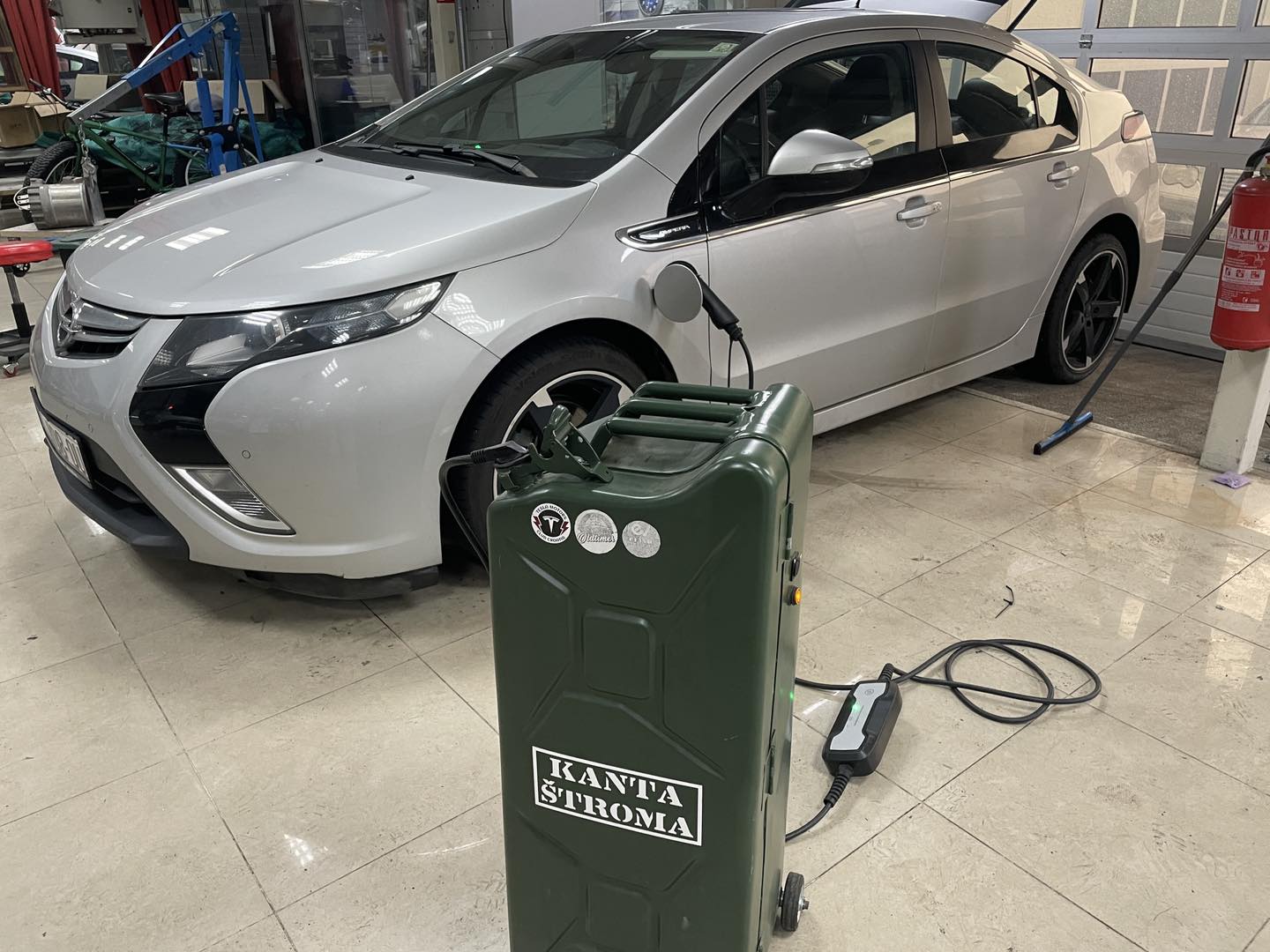
An electric vehicle with a built-in Range Extender or hybrid system, also known as the REX (Range Extender) system. Trolls mock it because it involves both electricity and an petrol generator. Although we’ve been “loving” hybrids for a long time and praising them every day because we live off sponsors (like most drivers and journalists, praising everything that’s flawed), we have to admit that the REX system is the only one that makes sense. You don’t have a gearbox, you don’t have a clutch, or 10 other unnecessary transmission components because you already have an electric drive; you just add a small 1.4-liter gasoline engine to work as a generator and recharge the battery only when necessary or when more power is needed. Opel, or rather GM, did this better than any “Made in EU” hybrid junk with a range of about 70 km. But GM, like any legacy manufacturer, has to complicate things, like the situation with the well-known coolant level sensor problem, which has two submerged electrodes and measures resistance through the glycol (24kOhm). The P0AA6 error is a generic insulation breakdown error that causes the system to deactivate charging on Type 1, which is not the primary problem (the car still drives) because it seems that the system checks if there is an insulation breakdown in the HV system through that sensor. No one predicted that the sensor would be faulty and that it would trigger a false positive insulation breakdown error. But that’s not the whole issue; it seems that consecutive insulation checks through that sensor activate either a bug or a feature, the P1FFF error, which permanently damages the firmware in the HPCM2 module, where the error remains permanently locked. You have an error indicating an insulation problem, and the system occasionally shows 0 and 240 kOhm in the parameters, which obviously confirms that there is something wrong with the wiring or component. So, we measure everything one by one for 15 working hours, almost even removing and opening the battery because we realized that it seems normal for it to throw 300V to the chassis on the service fuse. After a few days of measurement exorcism, we fail to clear the error and resolve the charging issue. Even parallel checks with the same functioning vehicle don’t help us figure out why. Then, lost in the depths of the internet, we found a recommendation to reprogram the HPCM2 module using the original GDS2 tis2web tool. And unbelievably, programming solved the problem that we’ve been struggling with for days. It’s a classic story well known to mechanic colleagues, where the carelessness of legacy manufacturers, who poorly solved the software, causes the module to throw an error that leads in the wrong direction. You end up replacing half the parts just to maybe figure out where the problem might be. You spend hours and hundreds of euros, and then some Socrates would say that the mechanic is not good or doesn’t know what he’s doing. There are more and more of these phantom errors and problems in diesel/benzin EU vehicles, with some cars having over 20 errors that lead to misguided repairs.
HRVATSKI:
Opel Ampera 2013 – Električno vozilo sa ugradjenim Agregatom ili hybrid a neki ga zovu REX sustav (Range extender) a trolovi sline jer se spominje struja i agregat. Iako “volimo” hybride odmilja i hvalimo ih svaki dan jer od sponzora zivimo (kao vecina automobilista i novinara, hvalis sve sto nevalja) moramo priznati da REX sustav jedini ima smisla, nemas mjenjaca, nemas lamele i 10 drugih nepotrebnih komponenti prijenosa jer vec imas elektropogon, samo stavis 1.4 mali benzinac da radi kao agregat i dopunjuje bateriju samo ako mora ili ako fali snage. Opel, tj GM je ovo bolje napravio nego bilo što od Made in EU hybrid škarta, sa dometom od oko 70km. Ali GM kao i svaki legacy mora zakomplicirati nešto kao situaciju sa vrlo poznatim problemom senzora nivoa antifriza u boci, koji ima utopljene dviie elektrode i mjeri otpor kroz glikol. Greška P0AA6 je genericka greska direktnog proboja izolacije zbog koje sustav deaktivira punjenje na Type1 što ne primarni problem (auto vozi), jer izgleda preko tog senzora sustav provjerava je li probija i HV sustav. Nitko nije predvidio da će senzor biti neispravan i da ce to opaliti false positive gresku proboja izolacije. Ali nije sav vrag u tome, izgleda uzastopne provjere izolacije preko tog senzora aktiviraju ili bug ili feature P1FFF grešku koja trajno osteti firmware u HPCM2 modulu gdje greška ostaje zaključana trajno. Imaš grešku koja kaže da je problem izolacije, cak sustav u parametrima pokazuje povremeno 0 i 240kOhm, sto naravno potvrdi da nesto ne valja na ožičenju ili komponenti pa onda kao mi sve redom mjerite 15 radnih sati, skoro smo i bateriju skidali i otvorili jer ona (skuzili da je to izgleda normalno) na service fuse baca na sasiju 300V.
Nakon par dana egzorcizma mjerenja ne uspjevamo izbrisati grešku i ne uspjevamo riješiti punjenje i paralelne provjere sa istim ispravnim drugim vozilom ne uspjevamo skužiti zašto, da bi u bespuću interneta našli preporuku da naprogramiramo HPCM2 modul original GDS2 tis2web alatom. I nevjerovatno, programiranje riješilo problem oko kojeg se vrtimo danima. Klasična priča vrlo poznata kolegama mehaničarima gdje šlampavost legacy proizvodjaca koji su nakaradno riješili software, modul izbaci gresku koja odvede u pogrešnom smjeru gdje moras mjenjati pola dijelova da bi skuzio uopce gdje bi mozda mogao biti problem, potrosis sati i stotine eura da bi jos neki sokrat rekao kako majstor nevalja ili nezna. Takvih fantomskih gresaka i problema na dizel/benzin EU vozilima je sve više i više, neka vozila imaju i preko 20 gresaka koje vode u pogresnom smjeru reparaciju.
Errors: P0AA6, P1FFF, P1E00, 24042130, 24042130,
Battery price: EOL , not possible to buy 30000€
OEM Workshop: unknown, not supported
EV Clinic: 600€ (mlada obitelj sa bebom, popust)













